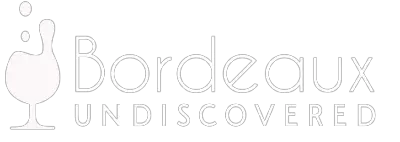I thought I would let the dust settle before writing a  blog about the Bordeaux 2010 prices and the fallout that ensued. There is a lot of unrest and unease in the market and I can only base these thoughts on what I have experienced and seen myself.
blog about the Bordeaux 2010 prices and the fallout that ensued. There is a lot of unrest and unease in the market and I can only base these thoughts on what I have experienced and seen myself.
There is a great amount of unsold wine washing around the market – if you read my blog on Chateau Rieussec you will know that I highlighted the common practice in Bordeaux to make a conditional offer to merchants that ties in a different wine at En Primeur to the one being sold.
I can see that negotiants are struggling to sell particular wines by the offers that they make to me.
Non Rothschild wines for example are being offered alongside much sought after Chateau Lafite. One particular offer was that you could acquire 12 bottles of Chateau Lafite provided you bought 300 bottles of Chateau Talbot. I am getting similar offers concerning Chateaux Cheval Blanc, Angelus, Chasse Spleen . . . the list goes on and on.
Of course different wine merchants will get different offers dependant on their buying power but I am revealing my situation as a case in point. In my view only a top few wines are selling and the rest are stuck. It is a re al problem for the negotiants – not the chateaux.
al problem for the negotiants – not the chateaux.
There is a nervousness amongst negotiants, and quite rightly so as the system is starting to fray. There is trouble afoot not just amongst negotiants but also courtiers (brokers).
I have seen cases of courtiers shifting to the role of negotiant in recent times and wondered why? Given that the chateaux are sending out their own ambassadors (Chateau Margaux sent Paul Pontallier’s son, Thibault, to Hong Kong, d’Yquem are considering doing so and Pontet Canet are sending one out soon).
If the chateau has its own broker in situ out there in Asia are the courtiers seeing themselves facing redundancy?
Talking of redundancy I can see the chateaux bypassing negotiants and selling direct to China. I am sure that behind the scenes it is already happening.
Jane Anson of The New Bordeaux wrote an insightful piece on Bordeaux and China in which she pointed out the Chinese purchase of the Lalande de Pomerol estate Chateau de Viaud by the Chinese government backed COFCO. As Jane says:
“Among their stated plans, besides the distribution of Viaud itself in China, was the distribution of other classified wines through a merchant company owned by the previous owner of Viaud, Philippe Raoux, and the creation of a branded wine for the Chinese market.
Owning a chateau in Bordeaux allows the property holder to get round complicated rules about grape purchases, and gives them theoretical access to large amounts of wine. Until now, very few chateaux owners have taken advantage of this, leaving it to the Bordeaux négociants. But the Chinese owners are happy to do it themselves.”
In conjunction with this thought I have noticed that China has established th eir own version of Li-vex . . . and then some. Shanghai’s local government has set up an international trading platform to sell approved stocks of fine wines.
eir own version of Li-vex . . . and then some. Shanghai’s local government has set up an international trading platform to sell approved stocks of fine wines.
The Shanghai International Wine Exchange is an internet platform dealing in fine wines. The China Construction Bank Corporation (CCBC), is working together with brokers to offer packages of wines to high net worth individuals, those with assets of RMB5-10m (around USD$1.5m).
The membership only website is open to international investors across the world and the government, via insurers, will underwrite the wines.
The Shanghai International Wine Exchange is part of the Chinese Wine Mall Group who intend to open 200 Wine Mall stores by the end of 2012 and 500 stores by the end of 2015 across China.
The Wine Exchange building in Shanghai has a construction area of 5000 square metres, a total project area 23,000 sq metres, an above ground area of 17,000 sq metre s and an underground area of 3300 sq metres.
s and an underground area of 3300 sq metres.
It will include a specialised Imported Wine Exhibition Centre, retail store, business and admin centre, winery agency, professional custom clearance, storage space and logistic service.
The Trading Platform will allow international wineries and wine merchants to display their wines directly at the Wine Exchange Exhibition Centre.
Chinese wine merchants or distributors may place orders and deal directly through the wineries representatives located at the Wine Exchange.
Of course most Bordeaux chateaux will always need negotiants – but those who can deal direct, will. The top flight Grand Cru Classé have become a luxury item and, similar to the latest “must have” in haute couture, they are in fashion.
How long that fashion will last is anybody’s guess. By abandoning their traditional markets certain chateau have shut the door on loyal followers who will turn to lesser known gems and discover new horizons.
Bordeaux continues to make great wines but will we end up dealing with China rather than France to acquire them? Now there’s a thought.


